The Economist: The new world disorder - No.25 - 20th Jun 20
Tạp chí The Economist là tạp chí uy tín của Anh với lịch sử hơn 176 năm hình thành. The Economist nổi tiếng với văn phong hàn lâm, chuyên sâu về các vấn đề chính trị, kinh tế trên toàn thế giới. Hiện ấn bản nhập về Việt Nam là phiên bản cho khu vực Châu Á - Thái Bình Dương.
Lợi thế của The Economist:
+Tạp chí 176 năm hình thành.
+Được viết bởi chuyên gia The Economist.
+Là tạp chí ưa thích của các doanh nhân hàng đầu thế giới.
+Có các số liệu, sơ đồ, hình ảnh trực quan trong các bài viết.
+Có bài viết được đưa vào đề thi IELTS.
+Có các bài viết có thể sử dụng trong luận văn, nghiên cứu với lời văn trau chuốt.
Chi tiết sản phẩm
The Economist: The new world disorder
Britain has the wrong government for the covid crisis
There was a lot going on in Britain in early March. London staged an England-Wales rugby match on March 7th, which the prime minister attended along with a crowd of 81,000; on March 11th Liverpool played Atletico Madrid, in front of a crowd of 52,000 fans, including 3,000 from Spain; 252,000 punters went to the Cheltenham Festival, one of the country’s poshest steeplechase meetings, which ended on March 13th.
As Britons were getting together to amuse themselves and infect each other, Europe was shutting down. Borders were closing, public gatherings being banned. Italy went into full lockdown on March 9th, Denmark on March 11th, Spain on March 14th and France on March 17th. Britain followed only on March 23rd.
The new world disorder
Seventy-five years ago in San Francisco 50 countries signed the charter that created the United Nations—they left a blank space for Poland, which became the 51st founding member a few months later. In some ways the un has exceeded expectations. Unlike the League of Nations, set up after the first world war, it has survived. Thanks largely to decolonisation, its membership has grown to 193. There has been no third world war.
And yet the un is struggling, as are many of the structures, like the World Trade Organisation (wto) and the Nuclear Non-Proliferation Treaty (npt), designed to help create order out of chaos. This system, with the un at its apex, is beset by internal problems, by the global struggle to cope with the rise of China, and most of all by the neglect—antipathy even—of the country that was its chief architect and sponsor, the United States.
How to end the perilous Indo-Chinese border spat
In the ancient Chinese game of Go, clever players ignore little battles in favour of strategic plays. Leaving local disputes unresolved means that later, when the game tightens and the enemy is off-guard, you can snatch prizes at lower cost. In the 69 years since China truly became India’s neighbour by grabbing Tibet, the world’s two most populous countries have played a similar game. Even as their leaders summited and trade thrived, the Asian giants left a mess of territorial disputes to fester.
Mostly these claims, over some 130,000 square kilometres on either side of their 3,488km-long border, have not mattered much. Despite a Chinese “lesson-teaching” invasion in 1962, rare armed skirmishes and less rare fisticuffs between patrols, the border zone has remained relatively calm. Much of it is too rugged and empty to fight over. So long as neither side shifts the status quo, what difference does it make if there are no proper markers on long stretches of border, but instead just a fuzzy “Line of Actual Control”?
Check out more at: https://www.economist.com/weeklyedition/2020-06-20
Sign up and contact us for purchase The Economist Weekly magazine:
Ms. Ha: 0915 932 392/ 0933 141 569
The World Ahead 2022 (tên cũ The World In)
295.000 đ790.000 đ
The Economist - Tạp chí chính hãng - No 39.21
138.000 đ138.000 đ
COMBO THE WORLD IN: TẠP CHÍ DẪN ĐẦU - [HẾT HÀNG]
600.000 đ1.191.000 đ
Combo 2: Các vấn đề về Corona ảnh hưởng đến kinh tế
346.000 đ576.000 đ
The Economist: How to Contain Iran - No.26.19
184.000 đ219.000 đ
The Economist: The Trump Show - No.1.19
184.000 đ219.000 đ
Nikkei Asian Review: Mesmerized - No.13 - 26th Mar 20
69.000 đ138.000 đ
The Economist: How to Contain Iran - No.26.19
184.000 đ219.000 đ
The Economist: Next to blow: Britains constitution - No.22.19
64.000 đ219.000 đ
The Economist: Next to blow: Britains constitution - No.22.19
184.000 đ219.000 đ
The Economist: Combo The Economist in 2020
219.000 đ438.000 đ
The Economist: The Next Calamity - No.13 - 28th Mar 2020
109.000 đ109.000 đ
The Economist: Closed - No.12 - 21th Mar 2020
109.000 đ219.000 đ
The Economist: Big tech's $2trn bull run - No.08 - 20th Feb 20
109.000 đ219.000 đ
The Economist: The Politics of Pandemics - No 11.20 - 14th Mar, 2020
109.000 đ209.000 đ
The Economist: A United Ireland - No 07 - 13th Feb 20
109.000 đ219.000 đ
The Economist: The Right Medicine For The World Economy - No.10 - 7th Mar 20
109.000 đ219.000 đ
The Economist: Meet the new boss - No 6 - 8th Feb 2020
154.000 đ219.000 đ
The Economist: How bad will it get? - No 05 - 1st Feb 20
109.000 đ219.000 đ
The Economist: Intolerant India - No 04 - 25th Jan 20
154.000 đ219.000 đ
The Economist: The Horrible Housing Blunder - No 03 - 18th Jan 20
64.000 đ219.000 đ
The Economist: Masterstroke or Madness? - No 02 - 11th Jan 20
154.000 đ219.000 đ
The Economist: Modis Dangerous Moment - No.9.19
184.000 đ219.000 đ
The Economist: Poles Apart - No 01 - 4th Jan 20
154.000 đ219.000 đ
The Economist: Techs raid on the bank - No.18.19
184.000 đ219.000 đ
The Economist: Deathwatch From The Amazon - No.31.19
184.000 đ219.000 đ






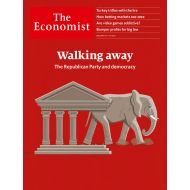






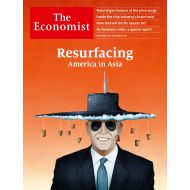





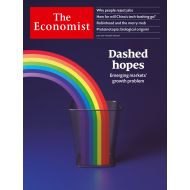









![COMBO THE WORLD IN: TẠP CHÍ DẪN ĐẦU - [HẾT HÀNG]](thumb/190x190/2/upload/product/21-1001.jpg)








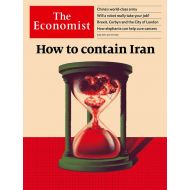
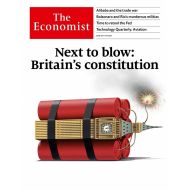










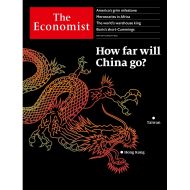


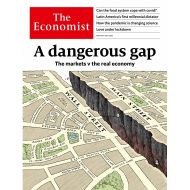



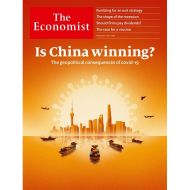


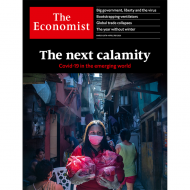








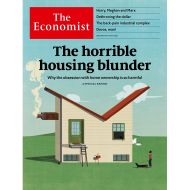

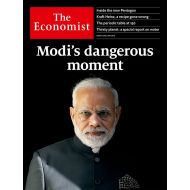











 Gọi điện
Gọi điện SMS
SMS